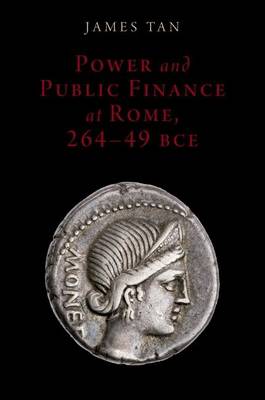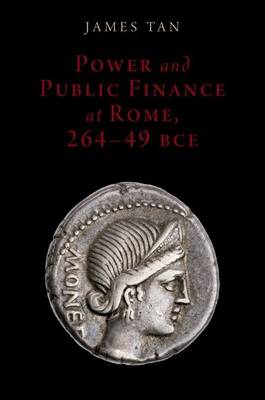
Bedankt voor het vertrouwen het afgelopen jaar! Om jou te bedanken bieden we GRATIS verzending (in België) aan op alles gedurende de hele maand januari.
- Afhalen na 1 uur in een winkel met voorraad
- In januari gratis thuislevering in België
- Ruim aanbod met 7 miljoen producten
Bedankt voor het vertrouwen het afgelopen jaar! Om jou te bedanken bieden we GRATIS verzending (in België) aan op alles gedurende de hele maand januari.
- Afhalen na 1 uur in een winkel met voorraad
- In januari gratis thuislevering in België
- Ruim aanbod met 7 miljoen producten
Zoeken
Omschrijving
Rome's wars delivered great wealth to the conquerors, but how did this affect politics and society on the home front? In Power and Public Finance at Rome, James Tan offers the first examination of the Roman Republic from the perspective of fiscal sociology and makes the case that no understanding of Roman history is complete without an appreciation of the role of economics in defining political interactions. Examining how imperial profits were distributed, Tan explores how imperial riches turned Roman public life on its head. Rome's lofty aristocrats had traditionally been constrained by their dependence on taxpayer money. They relied on the state to fund wars, and the state in turn relied on citizens' taxes to fuel the war machine. This fiscal chain bound the elite to taxpayer consent, but as the spoils of Empire flooded into Rome, leaders found that they could fund any policy they chose without relying on the support of the citizens who funded them. The influx of wealth meant that taxation at home was ended and citizens promptly lost what bargaining power they had enjoyed as a result of the state's reliance on their fiscal contributions. With their dependence on the taxpayers loosened, Rome's aristocratic leaders were free to craft a fiscal system which prioritized the enrichment of their own private estates and which devoted precious few resources to the provision of public goods. In six chapters on the nature of Rome's imperialist enrichment, on politics during the Punic Wars and on the all-important tribunates of the Gracchi, Tan offers new conceptions of Roman state creation, fiscal history, civic participation, aristocratic pre-eminence, and the eventual transition to autocracy.
Specificaties
Betrokkenen
- Auteur(s):
- Uitgeverij:
Inhoud
- Aantal bladzijden:
- 248
- Taal:
- Engels
- Reeks:
Eigenschappen
- Productcode (EAN):
- 9780190639570
- Verschijningsdatum:
- 8/03/2017
- Uitvoering:
- Hardcover
- Formaat:
- Genaaid
- Afmetingen:
- 157 mm x 236 mm
- Gewicht:
- 476 g

Alleen bij Standaard Boekhandel
+ 483 punten op je klantenkaart van Standaard Boekhandel
Beoordelingen
We publiceren alleen reviews die voldoen aan de voorwaarden voor reviews. Bekijk onze voorwaarden voor reviews.









